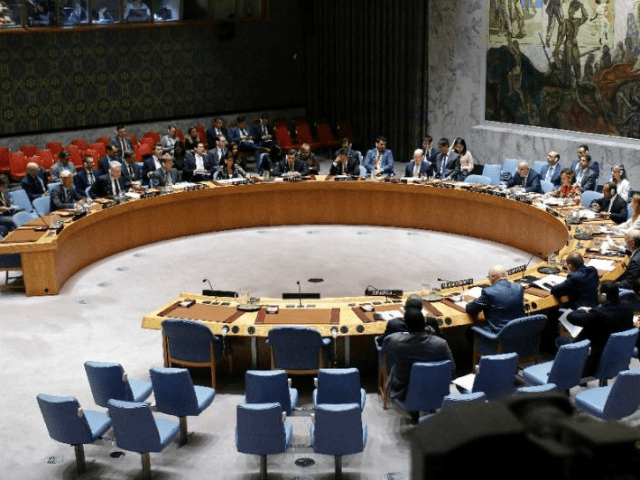UNITED NATIONS—In the face of yet more aggression from North Korea, particularly its launch of a missile over Japan this week, the United Nations Security Council is mulling its next step, with the possibility of further sanctions being raised by diplomats.
The Security Council met Tuesday afternoon, a day after the rogue regime fired a missile over Japan, and quickly produced a united, if somewhat bland, condemnation of the regime’s actions.
In addition to the expected condemnation, the Council accused North Korea of “deliberately undermining regional peace and stability and [having] caused grave security concerns around the world.”
However, even the most idealistic of members are likely to recognize that such a statement, while showing a rare unity of purpose among the Council, is unlikely to shift North Korea’s stance.
Signs from the U.S. were mixed. U.N. Ambassador Nikki Haley, who won a major diplomatic victory in July when China and Russia signed onto a U.S.-drafted sanctions resolution that kneecapped North Korea’s exports by a third, expressed outrage at the latest launch and welcomed the united response, but mentioned nothing about sanctions.
“The United States will not allow [North Korea’s] lawlessness to continue, and the rest of the world is with us,” she said after the statement was adopted.
President Trump, however, adopted a different stance Wednesday morning when he tweeted that “talking is not the answer”:
The U.S. has been talking to North Korea, and paying them extortion money, for 25 years. Talking is not the answer!
— Donald J. Trump (@realDonaldTrump) August 30, 2017
While there were no signs a resolution was immediately being drafted, a Security Council diplomat indicated that sanctions on North Korea’s oil and textiles exports, as well as the country’s use of foreign labor, could be on the table for any further resolution.
Swedish Ambassador to the Security Council Carl Skau told reporters that Sweden was open to discussions about sanctions, although he also urged “creative diplomacy” and that dialogue be sought wherever it could. He also noted the strong sense of unity from the Security Council:
I think what was important yesterday was the unity that came out and that we could so quickly agree on a very strong statement and I think that clearly sets the stage for continued, good cooperation on North Korea. I think everyone shares the urgency that something has to be done—this is possibly the greatest threat to international peace and security we have today, so from a Swedish point-of-view we were happy we could have a swift adoption of a strong statement with unity.
Japanese ambassador Koro Bessho gave the strongest indication that sanctions were on the horizon, telling reporters outside the Security Council that the Japanese wanted to discuss a new resolution with the U.S., noting that U.S. would be the penholder of any such resolution.
Meanwhile, U.K. Ambassador Matthew Rycroft said that Japan had the U.K.’s support, and indicated his openness for possible sanctions:
The UK and Japan stand shoulder-to-shoulder on this issue and we think that the time is right to consider further constraints on the DPRK regime, given that the constraints that we have put in place, so far, have clearly not yet gotten them to change course. So, we want to look with our Security Council partners at other sectors of the North Korean economy to see where there is more that can be done to tighten those constraints on the DPRK regime.
Whatever sanctions measures are put before the famous horseshoe table, they are likely to see stringent opposition from China and Russia. Instead, the duo is likely to argue that the sanctions are working and to place more emphasis on the stalled Six Party Talks, discussions that have borne little, if any, fruit.
Despite an often-gentle stance from Beijing, and an at times fiery position from Washington, neither side seems able to squeeze any change in behavior from the regime, pushing the U.N. into a position where it must either keep escalating its punishments against Pyongyang or look like it is backing down in the face of aggression.
Adam Shaw is a Breitbart News politics reporter based in New York. Follow Adam on Twitter: @AdamShawNY

COMMENTS
Please let us know if you're having issues with commenting.